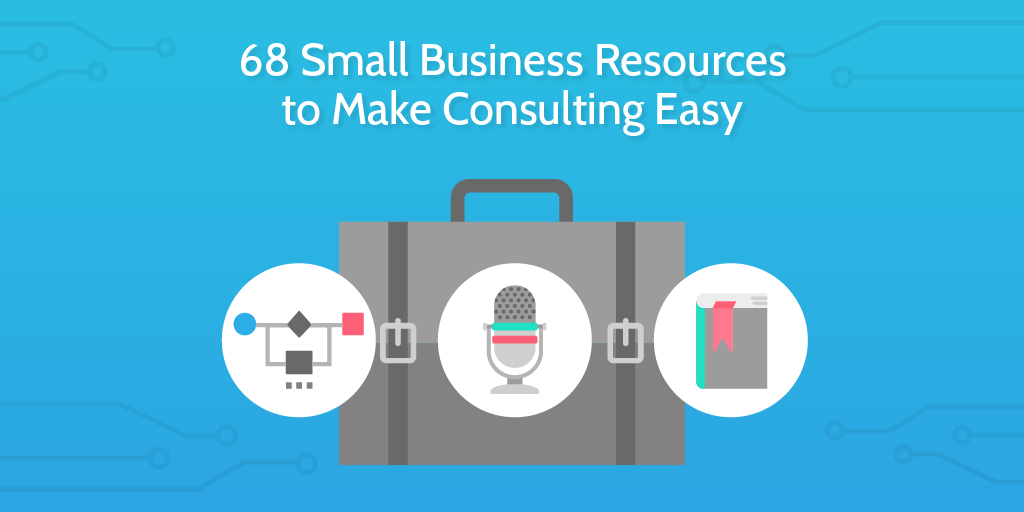
Over the last 6 chapters of our consultant’s guide to Process Street I’ve gone through the basic and advanced features, example processes, compared process documentation software, documenting client processes and monetizing our partner program (and the app in general).
In other words, you’re almost good to go. The only thing I have left to highlight are some extra small business resources for consultants to help you stay up-to-date on tips and tactics, improve your business practices in general, and to improve your toolkit.
I’ll be focusing on:
- Blogs and websites to widen your knowledge
- Ebooks to tackle complex topics and help you read more
- Podcasts to turn dead air into productive listening
- Posts to give concise insights into practices and principles
- Premade templates which are ready to use in your own organization, or to customize for your clients
- Tools to improve your stack
After all, it pays to be prepared.

Blogs and websites
First up we have a couple of blogs and websites you can check out to brush up your knowledge on consulting, efficiency, and businesses in general. These are fantastic for bitesize chunks of knowledge to up your consulting game or to get an insight into a new niche market you haven’t considered (or consulted on) before.
Think of this as your “general reading” segment – these sites are where you’ll get most of your regular information, and later I’ll move on to items such as ebooks.
Entrepreneur

If you want to know more about starting, running, and managing your own business, there are few better places to do so than Entrepreneur. With articles, tips, case studies, and more covering businesses in every sector under the sun, Entrepreneur is truly a fantastic well of information to brush up on your general knowledge about any and every kind of business.
Hack The System
Hack The System labels itself as the “unconventional” blog which provides “cheat codes for life”, and while that may sound a little cheesy, it’s an incredibly useful resource for anyone looking to make more out of what they have.
From increasing productivity to travel hacks, exercise hacks, flying for free, and learning a new language, Hack The System is one hell of a useful site.
Killer Consultant
As with practically any job on the planet, consulting isn’t always an engaging practice, and learning about new techniques to improve your game can be especially dull. Thankfully, Killer Consultant is striving to help consultants be the best they can while keeping things fun and interesting.
If you’re looking for a more casual tone in a consulting blog or just one that’s easy to read and has a sense of enthusiasm behind it, you could do far worse than Killer Consultant.
Management Consulted
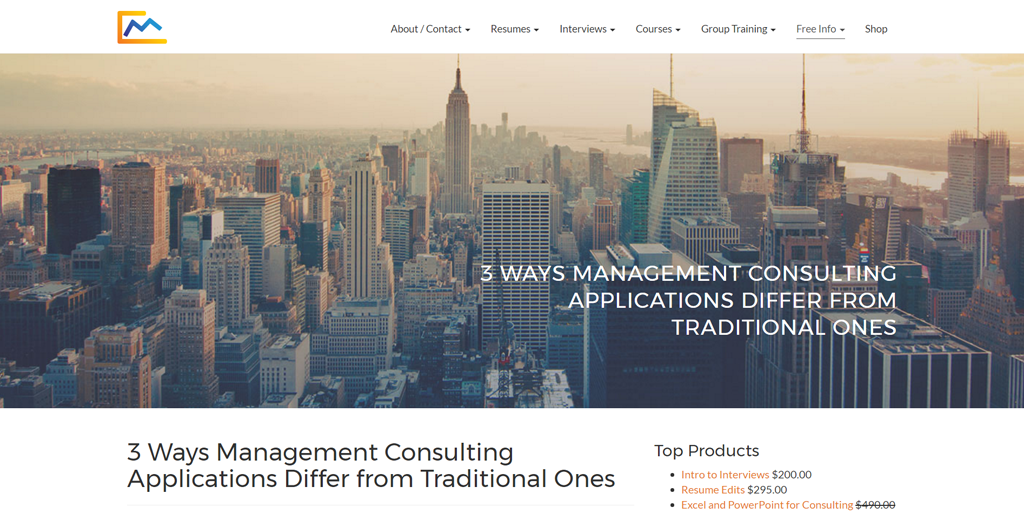
Management Consulted have written and continue to publish about anything and everything consultant related. Whether you’re looking to improve your consulting skills or you’re searching for job opportunities, slot this blog into your RSS feed to stay at the top of your game.
Process Street’s blog
Do you like consistency in you and your clients’ businesses? Do you hate wasting resources and general inefficiency costing you far more than you’re getting back out?
Then the Process Street Blog is for you.
Publishing on anything and everything business-related (from providing free process templates to analyzing 12,844 tweets to assess various Twitter support tactics), Process Street’s blog publishes three high-quality articles every week to help you systemize your business’ success.
Process Street Help Site
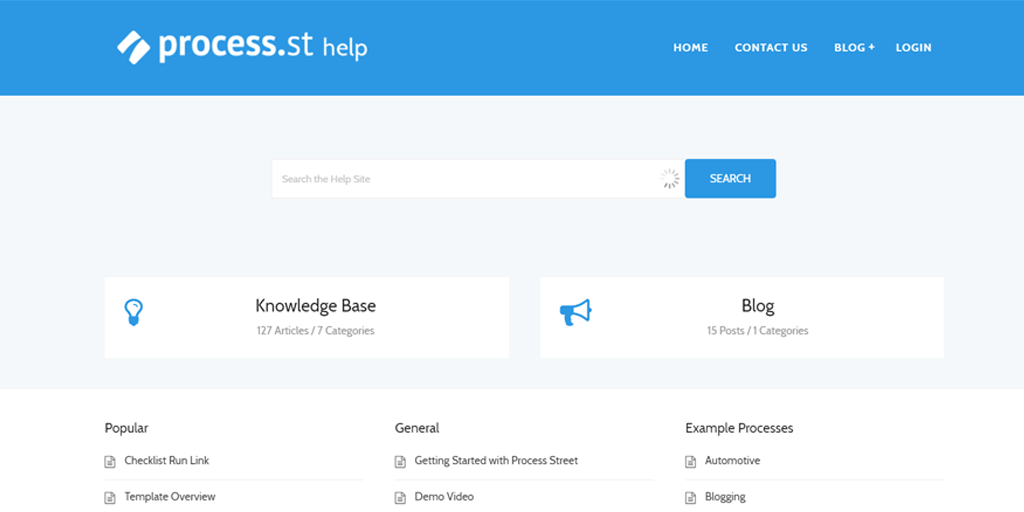
Don’t know how part of Process Street works? Hate having to reach out to customer support with basic questions? Well, with the Process Street Help Site there’s no reason to do so.
Here you’ll find everything you need to know about how to get started with Process Street, with screenshots and videos to show exactly how you can (and could) use the app to its full potential.
Tim Ferriss’ blog
From the mind behind The 4 Hour Workweek (which we’ve got in the “Books” section of this post), Tim Ferriss’ blog has an impressive backlog of posts both telling and demonstrating how to boost your efficiency and achieve success in your business. It’s hard to give a complete summary (the topic covered are so vast), but if you want to glean insight on new ways to streamline your work, this is a great place to start searching.
These days it largely provides summaries of episodes of The Tim Ferriss Show, but it’s still a great way to see interviews with interesting and inspirational people, along with the odd article covering anything and everything to do with boosting efficiency.
Troy Dean’s blog

Consultant, digital marketer, and voice acting-extraordinaire, Troy Dean also runs an incredibly useful blog for consultants and entrepreneurs alike. With useful insights on topic from building a minimum viable marketing strategy to how to think about your pricing method, the only downside is Troy’s posting frequency (around once a month).
Women In Consulting
Rather than being just a blog, Women In Consulting provides both helpful articles for consultants and a strong community to help each other network and grow. Think of WIC as a full networking and learning experience, and not just another website to check in on once in a blue moon.
Work The System
The Work The System blog draws from Sam Carpenter’s expertise in writing the book of the same name, and mainly deals with the systems behind everyday life and business success. Tips on reducing procrastination, upping productivity, what to focus on, and even free chapters from The Systems Mindset (Sam’s newest book) are all here.
Zapier

With automation, productivity, workflow, and app tips abound, the Zapier blog is a great resource for increasing your efficiency and smoothing out your workflows. If you want to get more done without the grunt work in your timetable, check out Zapier’s blog.
Books and ebooks
Blogs are fantastic for staying up-to-date on the latest news and developments in your niche (and even your clients’ niches), but to go in-depth on a topic you’ll need to get your hands on something chunkier to sink your teeth into.
Books and ebooks are a great way to tackle hefty topics and improve your skills while staying mobile. You can either take a physical copy with you to give yourself a break from staring at a screen or use a service like Kindle to keep every book synced across your devices.
You also still get the advantage of an extended look at a topic – after all, a 3,000 word post just can’t contain as much information as a 30,000+ word book.
The Challenger Launch Decision by Diane Vaughan
Normalized deviance is a massive problem in companies – if you don’t take a look at the big picture or get a second opinion on your processes, how can you be sure that you’re doing things the right way? What if the problem is down to things “just being that way”?
In The Challenger Launch Decision, Diane Vaughan retraces the steps leading up to the tragedy that was the Challenger shuttle launch, giving a life-and-death example of how the normalization of deviance can cause untold damage.
The Checklist Manifesto by Atul Gawande
While it may sound as if it were some sort of incredibly dry political document, The Checklist Manifesto is anything but. Drawing from his own experience as a surgeon, Atul Gawande explores the importance of processes and checklists to achieve the amazing.
We’ve written a Checklist Manifesto review already, but to summarize, this book really hammers home what simple checklists can do and why collaboration is so important to both their creation and implementation. Best of all, it uses examples that you’re not likely to forget to drive its point home.
A three-year-old child making a full recovery after falling in frozen water and being “dead” for two hours. A limousine driver who bounced in and out of intensive care due to repeated infection after major surgery. Gawande draws from these cases (in sometimes chilling medical detail) to bring the real consequences of checklists into focus, noting how they can not only improve business efficiency, but in extreme cases save lives.
The E-Myth by Michael E. Gerber
The E-Myth (and The E-Myth Revisisted) draw from Michael E. Gerber’s 40 years of experience consulting small businesses on why they’re not working, what they can do about it, and how to grow any company. This is an absolute must-read for consultants and small business owners alike.
Speaking of which, consider checking out Gerber’s E-Myth online course and how to build and scale a business with efficient systems. Plus (if you really want to go into detail), take a look at the E-Myth coaching services and Dreaming Room Monologues.
Process Street ebooks
Whether you’re looking to automate your busy work, improve your business process management, or manage your tasks more effectively, at Process Street we have a free ebook to guide you through the topic (without the jaw-breaking yawn).
Check out any of our ebooks below to get hundreds of pages of valuable tips and tricks, absolutely free of charge.
- The Ultimate Guide to Business Process Automation with Zapier
- The Complete Guide to Business Process Management
- The Complete Guide to Customer Success for SaaS Companies
- Get More Done: The Complete Introduction to Task Management
Standard Procedure by Tony Brown
In Standard Procedure, Tony Brown picks apart how to create systems to help your business keep running, even when you’re not working. By laying out the core principles for running your business no matter where you are, this book allows you to create the systems and processes you need to manage and grow your business.
Tim Ferriss’ books
Tim Ferriss’ books are familiar to many, and they’re popular for a reason. The 4-Hour Workweek is pretty much considered mandatory reading for any business owner, and focuses on providing a fresh way to look at the way we work, the goals we set, and the way we reach them.
Tools of Titans, meanwhile, is a collection of the lessons and recommended resources from Tim’s many interviews with “billionaires, icons, and world-class performers”. Even if you’re not interested in lessons from the lives of worldwide successes, it’s a fantastic way to expand your resource list if your “to read” library is running thin.
- Tools of Titans: The Tactics, Routines, and Habits of Billionaires, Icons, and World-Class Performers
- The 4-Hour Workweek: Escape 9-5, Live Anywhere, and Join the New Rich
Work The System and The Systems Mindset by Sam Carpenter
Have you ever struggled to see the systems behind a particular process or business? Having a hard time conveying the idea to your clients?
Work The System is your answer.
This book tackles the mindset to identifying, breaking down, and improving the systems behind everything we do. From personal life to the systems that brought you here and those responsible for your business’ success, check out this book to get some perspective on just how important processes are.
The Systems Mindset, meanwhile, expands on the ideas in Work The System to drive home the point and elaborate further on how to see and apply the principles behind life’s systems.
Podcasts
Dead air is (more often than not) nothing but a wasted opportunity. Think about it – how much time do you spend traveling, cooking, or even in the bathroom? For most, this amounts to hours upon hours of time spent not focusing on anything, with nothing but silence or the latest chart hits drifting through the radio.
Podcasts are a wonderful alternative to that, and are a fantastic way to boost your productivity during work hours. Instead of sitting still on a bus, train, or flight to work, you could be blasting through episode after episode of podcasts to help you get fresh ideas for how to improve yourself, your business, and your clients’ experience.
Business Systems Explored
Each and every episode of Business Systems Explored takes a deep dive into the processes and systems behind successful companies and individuals.
Through interviews with guests such as Michael Gerber and Steli Efti, hosts Tony Brown and Vinay Patankar peel back the lid of successful businesses to see the processes behind their success.
If you want to get inspiration for how to improve your clients’ processes, this is a great place to start.
Entrepreneur On Fire
Coming with a monstrous backlog of daily episodes, Entrepreneur On Fire is a fantastic resource for those who have a lot of dead air in their day, or who just like to listen to frequent podcasts on a variety of topics.
Every day host John Lee Dumas chats with the most successful and popular entrepreneurs in today’s circuit, detailing their journey to success, their worst moments as entrepreneurs, and their personal “Aha!” moments. For volume and the sheer variety of businesses talked about, this podcast is a must-listen.
Hack The Entrepreneur
Hack The Entrepreneur invites successful entrepreneurs sit down and share what they think were the biggest factors to their success, providing one “hack” per episode.
In other words, HTE is a fantastic resource for getting some insight into a wide array of businesses and how their founders believe they achieved success. Whether they used a particular process or are weighing up the pros and cons of a particular business practice, check out HTE for lessons you can apply to both your own and your clients’ businesses.
Harvard Business Review Ideacast

Need I even introduce the Harvard Business Review Ideascast?
An absolute must-have for strategy consultants (and management consultants in general), Ideacast provides summaries of key articles from HBR, with a focus on innovation, management, and leadership techniques. Plus it’s HBR, so you can expect a certain level of consistent quality.
Manager Tools
Managing people is a tricky business. You can lay out processes and plans all you want, but unless the human element is also accounted for then even the most carefully laid plans will be for naught. As such, it pays to have a guiding hand when preparing for (and dealing with) management issues.
Lo and behold, the Manager Tools podcast provides straight-forward, practical management advice which will well serve both you and your clients in running a business.
Marketing For Owners
Hosted by Jon Butt, the Marketing For Owners podcast covers exactly what it says on the tin – marketing tips for business owners.

If you don’t have the resources to use a marketing agency, bring in a marketing expert, and don’t want to rely on outside sources for sales, this is a perfect way to learn how to build your in-house marketing efforts to be successful without costing you the moon.
The Tim Ferriss Show
The Tim Ferriss Show is great for those of us who love learning how to improve ourselves and our businesses, but find general tips to be dry and devoid of personality. By conducting long-form casual interviews with success stories from Arnold Schwarzenegger to Rick Rubin, Tim Ferriss brings some fantastic methods to light while keeping the conversation fresh, interesting, and memorable.
Work The System
From the minds that brought you the Work The System book comes the Work The System podcast. This series is dedicated to creating the systems to fuel your business’ success and growth, while also improving your personal outlook and way of thinking.

While it gets updated pretty rarely (usually once every couple of months), this makes it an ideal entry point for anyone who feels a little intimidated by the backlog of some of the more prolific podcasts.
WP Elevation WordPress Business Podcast
While a bit of a mouthful, the WP Elevation WordPress Business Podcast provides unique insight into (you guessed it) building a successful WordPress business.
Hosted by Troy Dean, and with a truly impressive backlog spanning years of recording, there’s plenty here to fill your dead air with useful content.
Posts
Sometimes all that’s needed is a little bitesize knowledge to brush up your skills in a particular area, so I’ve collected together some relevant posts which can help both you and your clients to improve efficiency and manage a business.
4 Tips From a 26-Year-Old Who Built a $10 Million Consulting Business – Jonathan Long
This post is exactly what it says on the tin. Here Jonathan Long details the four most valuable lessons Sam Ovens (digital marketing consultant, CEO and founder of SnapInspect) learned from his rise to building a $10 million consulting business by the age of 26.

Whether you’re looking for a rags-to-riches anecdote or some crucial lessons for making it big as a consultant, 4 Tips From a 26-Year-Old Who Built a $10 Million Consulting Business has you covered.
7 Practical Tips Coming From The Youngest Highest Paid Internet Consultant In The World – Ulyses Osuna
This post isn’t easy to read because it isn’t written well. Sentences and paragraphs feel clunky to look at, and most of it has to be read twice to get the meaning of it.
The lessons inside it, however, are incredibly valuable to improving as a consultant.
Ulyses Osuna relays seven tips from Matt Pocious on the importance of negotiating as a consultant, and how to make more out of what you have.
11 tips for new consultants to hit the ground running – Management Consulted blog
Management Consulted’s blog brings these 11 tips for new consultants to cover the basics that every consultant needs to know and when squaring up to meet with a client for the first time.

However, as with many “tips for new hires” posts, these tidbits are just as important for seasoned veterans to be aware of and to follow. The process for preparing to work with a client doesn’t change based on your experience after all, and the last thing you want is to slip from complacency to normalized deviance.
12 Ways to Generate Leads for Your Consulting Business – Shelby Larson
Want more clients? Attract more leads. It’s that simple.
Unfortunately, knowing that is by far the easiest part of growing your paying audience. You have to constantly be at the top of your game if you want to have a steady influx of fresh leads, because (let’s face it) your existing clients won’t always pay for the same services.
Maybe one of them decides to slim their expenses and that their processes are good enough, or maybe you’re just looking to expand your consulting business. Either way, Shelby Larson‘s post on generating leads for your consulting business is a fantastic way to see the methods you can use to attract new leads which (given some qualifying, negotiation, pitches, and a little luck) could become your next round of paying customers.
21 Productivity Tips for Consultants – Michael Zipursky
Yes, I know that you’re probably sick to death of hearing about “productivity”, and have probably heard every note in the book about how to improve it, but stick with me on this one.

Michael Zipursky (co-founder of Consulting Success) does indeed cover some of the tried-and-tested productivity tips such as prioritizing your tasks, but there are a few gems amidst his 21 productivity tips others don’t touch, such as switching up your work site to keep yourself focused (a tactic I’m particularly fond of).
Clients are People too: Tips on Giving Better Customer Service in Your biz – Erika Madden
Frustrating as they may be, it’s important to remember that the heart of your consulting business relies on good customer service. If your clients feel like they’re being treated badly, they’re not going to use your services again.
Erika Madden (founder of Olyvia) illustrates this beautifully through an interview with Jessica Freeman, uncovering the mindset and methods to providing top quality customer service and even how to salvage a relationship gone sour.
After all, however much you may find a client is difficult to work with, you’ve got to remember that they’re people too.

Helpful tips to be a better consultant: April 2017 – Scott Frederick
Putting a value on your services can be daunting, and doubly so when you’re starting out. There are, however, a couple of methods you can use to give yourself an idea to work from (while being certain that you’re not short-changing yourself or your clients). One of the best methods is to estimate how much value you’re providing to clients and then working back from that.
Despite its generic title, Helpful tips to be a better consultant: April 2017 has three tips to help you accurately forecast the financial value of your services to a client. This is vital not only for accurately forecasting results to your clients but also in valuing your services.
After all, how much do you charge per hour when you aren’t certain of the value you’re providing?
Process Street posts
We’ve covered a hell of a lot of ground on Process Street’s blog. From improving productivity to analyzing the Twitter support of top SaaS companies, if it can help your business improve, we’ve covered it.
As with any established blog, however, our backlog is a little intimidating to look through – three long-form and detailed posts each week quickly mount up. So, here are a few choice picks to give you a taste of how our blog can help you boost efficiency in your business and run processes to scale your success.
- 9 Task Automation Tools You Should Be Using
- 16 Essential Steps to Writing Standard Operating Procedures
- 21 Excel Tips and Tricks to Become a Spreadsheet Sensei
- An Introduction to Automated and Interactive Processes
- The 30 Best Productivity Apps Ever Created
- Are Your Useless Tools to Blame for Bad Project Management?
- BPMN Tutorial: Quick-Start Guide to Business Process Model and Notation
- How and Why to Document Your Workflows
- How to Build a Minimum Viable Process Pack for Your Startup
- How to Use Visual Process Innovation to Make Your Startup More Efficient
- Process Management Explained: How to Combat Poor Processes in Your Business
Process Street template packs
Why slave away when we here at Process Street have done the hard work for you already?
Our premade templates are free to use and share, allowing you to have a head start in documenting certain processes for your clients, or even in creating your own templates to later sell to clients at a flat rate.
From documenting the real estate sales process to daily routines and monthly sales reports, there’s something for both you and your clients no matter your business type. Plus, who doesn’t love free stuff?
- 8 CRM Workflows to Destroy Data Entry and Close More Deals
- HR Templates: The Perfect Pack For Company Success
- 12 IT Processes to Solve Your Computer Woes
- 6 Checklists to Perfect your New Employee Onboarding Process
- 11 Checklists to Optimize Your Accounting Processes
- 9 Checklists to Drive Your Sales Processes
The Top 10 Tips For New Consultants And Freelancers – Ben Yoskovitz
An oldy but a goldy, these tips for new consultants and freelancers from <ahref=”https://twitter.com/byosko”>Ben Yoskovitz cover the base essentials for running a successful consulting business.
Whether you’re brand new or a veteran looking to improve their game, these tips are a great eye-opener into the heart of successful consulting.
Ten Laws of Pricing for Consultants – James Crossman
I’ve already talked about how difficult it is to price your consulting services, and while the previous post on how to calculate the hard value of your services is valuable, this post by James Crossman shows that there’s more to pricing your business than money.
None of the ten laws of pricing for consultants are gospel – they’re flexible enough to be adapted to your own business model and goals. They are, however, a brilliant set of guidelines for getting your price right.
Tools
Finally, we come to the tools you should be using and recommending to your clients. These are the power behind your efforts to increase consistency, scalability, and efficiency – without the right tools for the job, you and your clients will be left high and dry.
From generating and managing your passwords to documenting processes and syncing data, don’t leave home without the following tools in your arsenal.
1Password

Creating a password usually involves either a fine balance of randomness and memorability, but 1Password throws the regular formula out of the window. By letting you generate long, random passwords and save them in the app, you never again have to worry about someone guessing your passwords or even forgetting them yourself.
Not only that, but it has a handy Chrome extension which allow you to automatically fill in your login details on sites that you’ve saved in the app.
Airtable
Excel is good for managing huge data sets but, frankly, it’s awful for creating any kind of knowledge database. The integration options, along with those for interlinking various sheets, leave much to be desired if you’re looking for a responsive spreadsheet.
Airtable has no such issues, allowing you to create vast, sprawling databases without sacrificing the ability to easily view the information you want to. Even with basic features such as a search bar and custom views, Airtable takes the cake when it comes to providing a simple (and more user-friendly) version of Excel for all but the highest level Excel masters.
Close.io
Managing customer data can be a nightmare, but it’s also vitally important. Without an effective CRM, you’ll be left copying data to and from your records at every turn – every call, meeting, and deal will create more data management duties, effectively reducing the value of the deal.
Close.io solves that problem by providing a flexible platform for managing your customers’ data. Through Close.io and its potential integrations, you can view leads and opportunities, call prospects, email customers, and generally do everything a CRM should allow – managing your customer relationships.
Evernote
Evernote is perfect for taking notes, screenshots, links, and more no matter where you are, across any of your devices.
Whether you find an article relevant to a client or colleague during your morning browse, have inspiration strike you for optimizing a process as you commute, or encounter a bug with a program in your toolkit, Evernote will let you document it, file it to easily find again, and even ship into other apps with Zapier integrations.
Freshbooks
Freshbooks makes accounting easy for small businesses. Never again do you have to laboriously track your hours to later manually calculate your pay and then create an invoice – Freshbooks allows you to track your time, create professional invoices, track your expenses, see project overviews and more, all within the same app.
Stop wasting time on accounting, and start using it to get more clients instead.
Google Drive

If you’re not using cloud storage, you’re inviting disaster into your organization. Even if you save backups to physical drives, how often do you change those backups? How much work would you lose if your computer stopped working right this second?
Well, with Google Drive you’ll no longer have to worry about those issues, as all of your files will be automatically backed up to Google’s servers. Their free accounts also come with 15GB of storage space, which is more than enough for most of the files in recent memory.
Using a cloud storage service for work is also a great way to collaborate – it lets you store automatically updated files and give others permission to view and/or edit them, without them ever having to download the document in question. Collaboration in real-time made easy.
If you’re not sold quite yet, check out our Google Drive vs Dropbox post to learn the ins and outs of why it’s so good.
Grammarly
Let’s face it – we all make spelling and grammar mistakes.
Whether you’re switching between American and British English or happen to miss a letter while typing, these are the tiny errors which impact your professional image. They may be inconsequential, but they’re highly visible, and serve to build a terrible impression of your wider abilities.
With both a native desktop app and plugins for Chrome and Microsoft Office, Grammarly automatically highlights and suggests corrections for almost every spelling and grammar mistake you make. I say “almost” because nothing’s perfect – Grammarly will pick up on the bigger errors but you’ll still need to check through to make sure that everything makes logical sense.
Think of it as your first round basic proofreader, only it checks as you write and does all of it automatically.
Inbox

Inbox by Google is a fantastic way to organize your Gmail account. With handy features like easily bulk archiving (instead of outright deleting), pinning important emails, and snoozing items to pop up again later, the debate of Inbox vs Gmail holds little competition.
Inbox beats Gmail every time.
Office 365
Although it’s far from the best process documentation software on the market, Microsoft Office 365 provides a wide array of tools to suit your basic business needs, such as Word for documents, Excel for spreadsheets, and so on.
Process Street
Process Street is the best process documentation software on the market. Check out Process Street reviews if you don’t believe me.
Documented processes give consistency, efficiency, and accuracy to any business which uses them. Process Street lets you easily document, run, and track your business’ processes, creating a scalable model to reliably grow your company and cement employee accountability.
You can even earn a passive income by referring Process Street to your clients – we’ll pay you 20% of whatever your referrals spend in their first year with us.
Sign up for a free account today.
Trello
The current king of project management, Trello provides a fantastic way to organize your tasks and projects using kanban boards.
Imagine you have a notice board in your office to pin tasks to. You might have the board divided into columns to better organize whatever notes you put up there. That’s exactly how Trello works – by setting up cards to contain tasks, columns to organize those tasks, and boards to house your columns and different projects.
Zapier

Zapier is a vital addition to the toolkit of anyone (consultant or otherwise) who wants to do less work themselves. Instead of having to manually carry out predictable tasks yourself such as data management, creating documents, sending emails, and following up with clients, Zapier can automatically complete them.
I’ve harked on about Zapier enough in this guide already, but one final time I’ll mention that we have a free Business Process Automation Guide which you can use to go from complete Zapier beginner to automation extraordinaire.
Small business resources for consultants to improve and succeed
While multiple books could be filled with all of the resources consultants can use to expand their knowledge, improve their practices, and widen their tool belt to suit specific use cases, I’ll leave it at that for this chapter in our consultant’s guide to Process Street. However, if you think I’ve missed one of the vital small business resources for consultants, don’t hesitate to get in contact – I’d love to expand this list with any suggestions you may have.
As the consultant’s guide winds down to a close, I’d like to thank you for reading and sticking through this series with me. Here’s to successfully increasing efficiency by improving technology, management, and above all, processes.
Let me know in the comments if you think I missed a resource for consultants – I’d love to hear from you.







 Workflows
Workflows Projects
Projects Data Sets
Data Sets Forms
Forms Pages
Pages Automations
Automations Analytics
Analytics Apps
Apps Integrations
Integrations
 Property management
Property management
 Human resources
Human resources
 Customer management
Customer management
 Information technology
Information technology



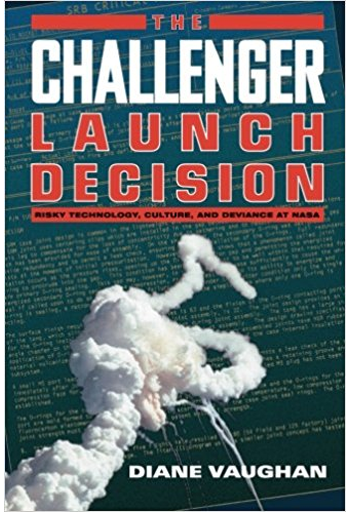

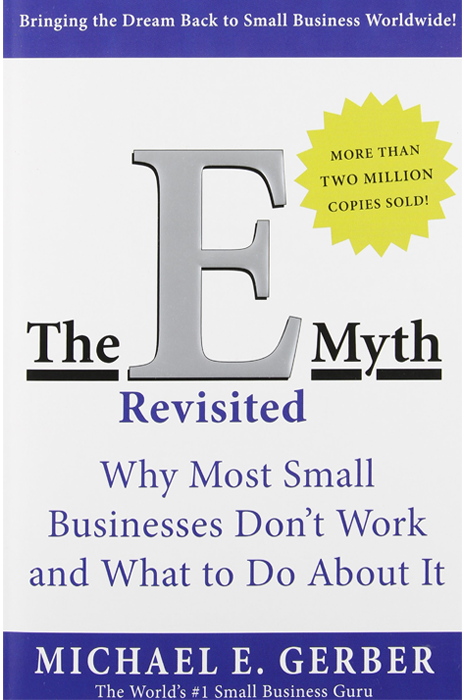
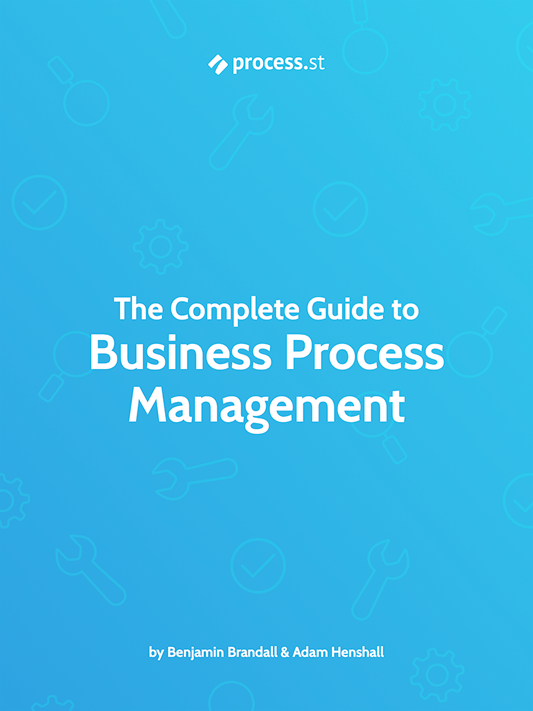
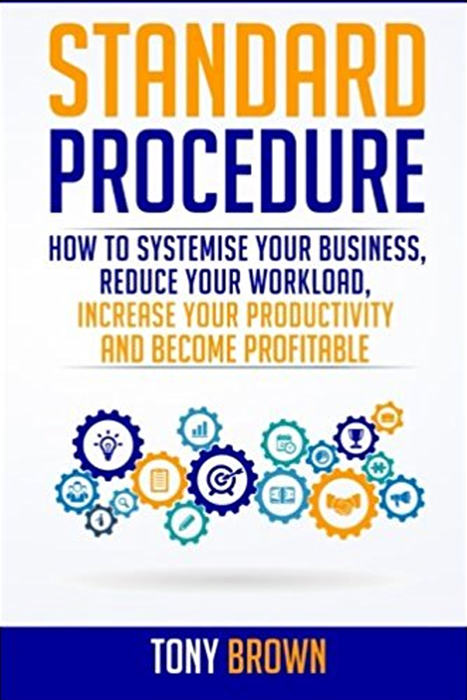
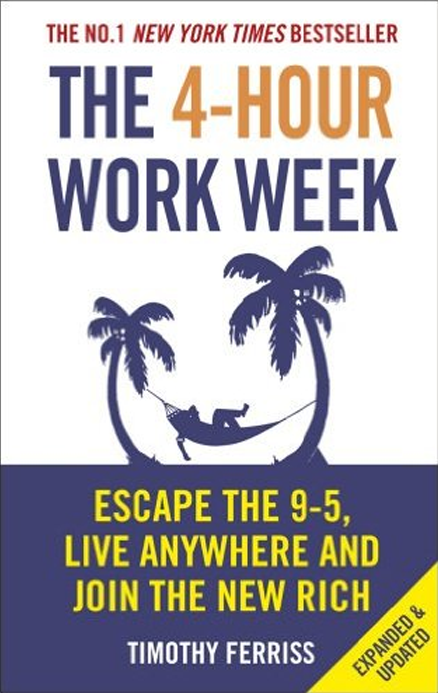
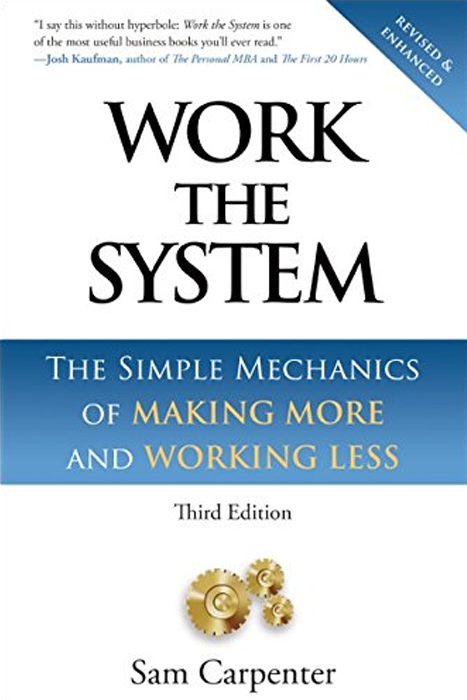

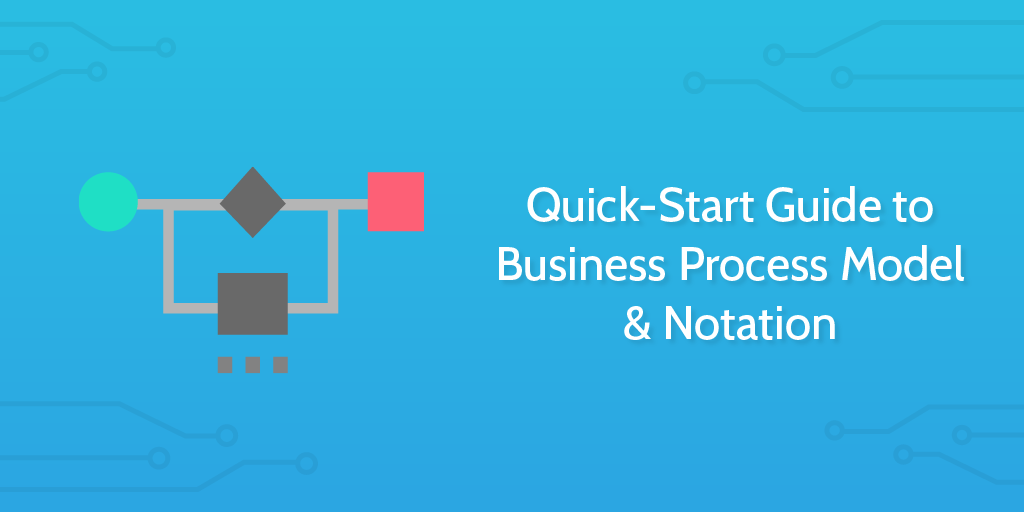

Ben Mulholland
Ben Mulholland is an Editor at Process Street, and winds down with a casual article or two on Mulholland Writing. Find him on Twitter here.